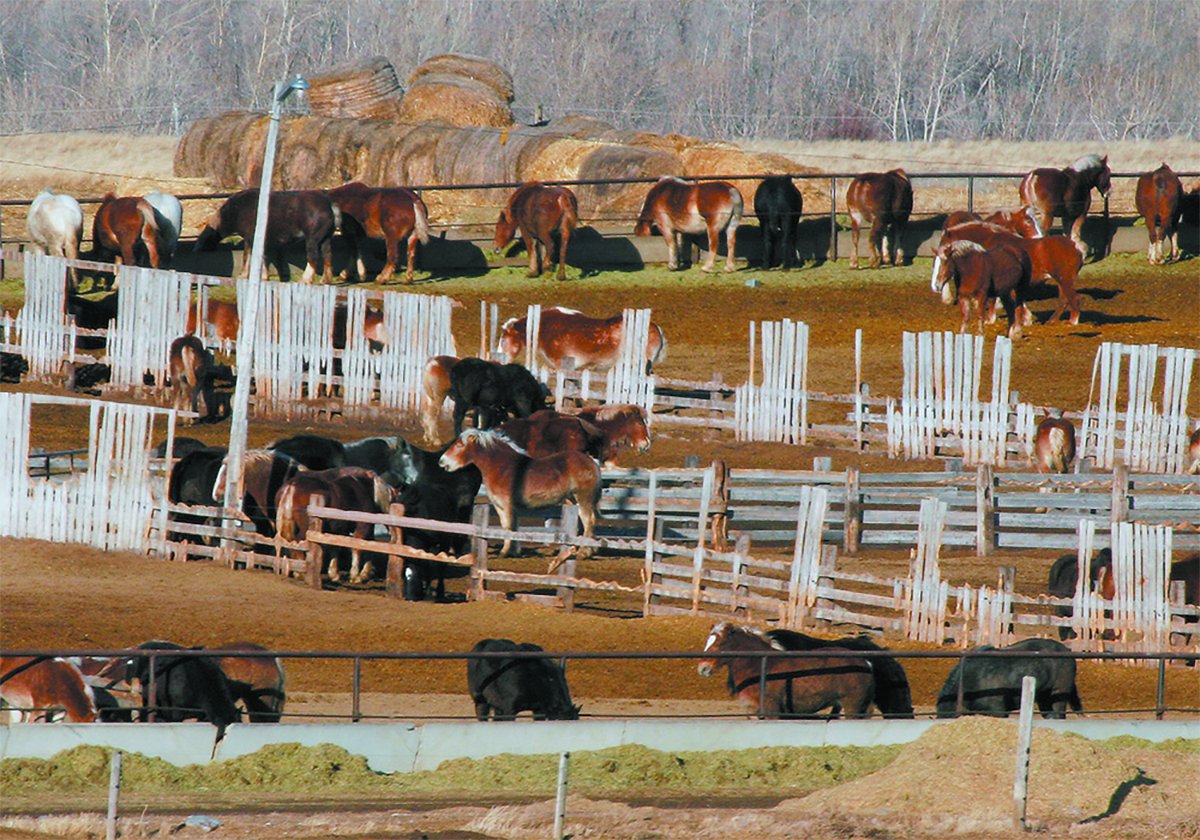The only thing tougher than being a Liberal in Alberta is being a Liberal candidate in Calgary during the Stanley Cup playoffs, when all attention is focused on the hometown hockey team.
While the underdog Calgary Flames lost the trophy, the team’s campaign to glory was all that mattered to many southern Alberta voters.
Candidates realized it would be a strategic faux pas to campaign during game time.
“It’ll be a three week election rather than a five week election,” said Liberal hopeful Ted Haney, the prominent beef industry official who faces his own uphill battle against popular Conservative incumbent Diane Ablonczy in the Calgary Nose-Hill riding.
Read Also

Canada’s slaughter horse industry lacks transparency
The lack of clear reporting and public access to data keeps the industry largely hidden, leaving questions about humane treatment and traceability unanswered.
Ablonczy said this has been the slowest start to any campaign she has ever been involved with in her 10 years as a Reform, Canadian Alliance and Conservative member.
The riding presents many unknowns to candidates. An upscale, surburban area, it is the fastest growing constituency in Canada. Half the riding did not exist 10 years ago as the city sprawled into nearby farmland.
“I’m representing people that weren’t there 10 months ago,” Ablonczy said.
“The houses of people that are voting June 28 haven’t been built yet.”
A former lawyer and grain farmer from Cremona, Alta., Ablonczy achieved national prominence as chief opposition critic for health, human resources and immigration as well as a member of the public accounts committee investigating the sponsorship scandal. She is confident of keeping her seat along with seven other Conservative hopefuls in the city.
“We’re neck and neck with the Liberals nationally … and Calgary is very conservative territory,” she said.
“I would find it very unlikely that Calgary would do something different.”
Ablonczy and Haney agree agriculture has received almost no attention in this campaign, even though farmers continue to face economic hardship from bad weather and BSE.
In fact, it was BSE that lured Haney from his job as president of the Canada Beef Export Federation.
He said the economic tragedy of BSE revealed the importance of government connections in Ottawa. Energy and agriculture drive Alberta and decisions made in Ottawa have not reflected the importance of these industries to the province, he added.
“Our (livestock) industry is recognized as very right leaning and very western oriented. It found itself at the beginning of the BSE crisis too distant from the Liberals,” he said.
“Our MPs did the best job they could, but being in opposition really weren’t able to help us to craft strategy that would be most effective.”
The 43-year-old political neophyte’s positions reflect a western sensibility.
“When I decided to accept the offer to run for the Liberal party, part of it was on the basis of accepting me for who I am and for where I come from, knowing I’ll pursue options that may not be consistent with standard party lines,” he said.
Party officials accepted his proposal for a pro-market choice stance on the Canadian Wheat Board.
Haney said if the Liberals want to continue governing, they have to accept changing opinions from the West.
With a master’s degree in agricultural economics, Haney has been a strong voice for farmers since his first job after university sent him to Myanmar on an agriculture project at age 24.
A skilled negotiator, he supports a strong health care system and wants better co-operation among provincial and federal governments to reform what may be the most important issue for the average Canadian.
Views from other parties were limited in this story because the New Democratic Party candidate Vinay Dey and Green party candidate Richard Larson entered the race shortly before the deadline for filing nominations closed on June 7.

















